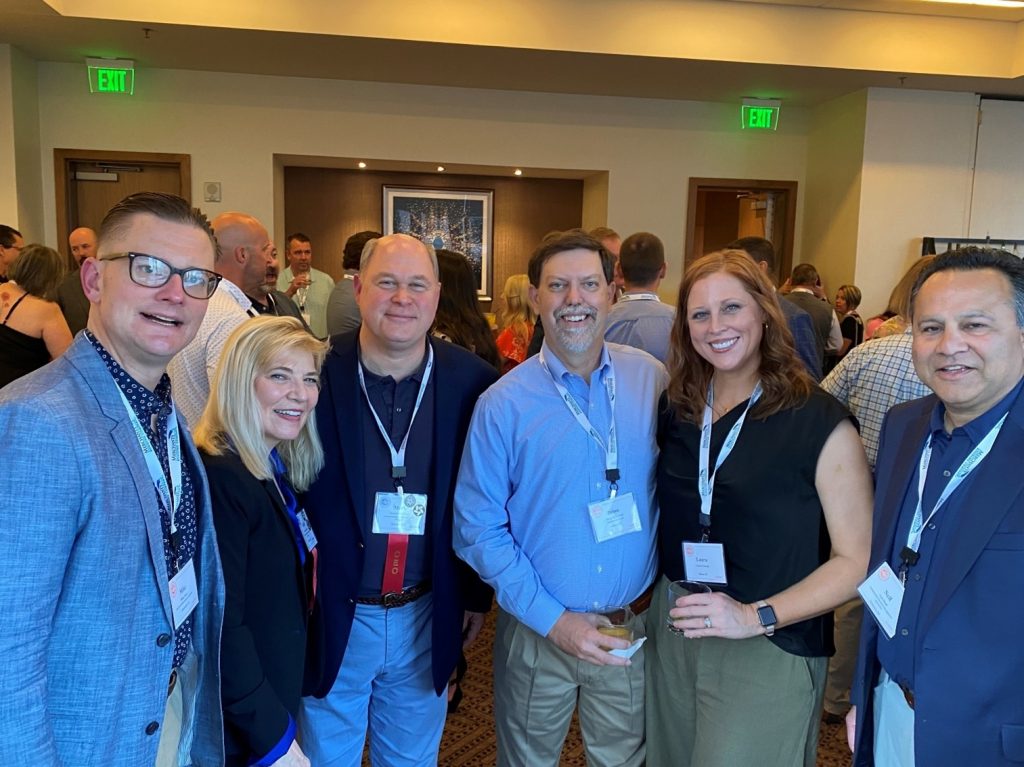
ASA Participates in NASBP’s Annual Meeting in Austin, TX
In advance of his work on Capitol Hill this week, ASA Government Relations Director, Mike Oscar, spent Sunday and Monday with our partners, the National Association of Surety Bond Producers (NASBP), at their annual meeting in Austin, TX. Thank you to Brian Carroll, former ASA President, a member of ASA’s Attorneys Council (AC), and based in Austin for joining him. Additionally, they were joined by his wife, Laura, along with Mark McCallum, CEO of NASBP, and Neil Shah, CEO of the Construction Financial Management Association (CFMA). It was great to be in attendance with such an esteemed group of construction professionals.
ASA and NASBP support H.R. 1740, legislation that ensures the common use of payment and performance insurance bond protections are applied on water infrastructure projects where federal funds are being used. The legislation would help ensure parity with payments protections already in place for traditionally procured infrastructure projects.
Surety insurance bonds have played a vital role in building out our nation’s infrastructure. Since the passage of the Miller Act in 1935, and subsequent state “Little Miller Acts,” payment and performance bonding have been a common requirement for public works projects. Through payment guarantees and completion assurances, surety bonds have worked to ensure projects are done on time, subcontractors and workers on the projects receive compensation, while also protecting precious taxpayer resources. Currently, more than 95 percent of all public projects require bonding. However, the advent, and increased use, of creative financing measures, such as public-private partnerships (P3s), has created an area of ambiguity, and in some instances, bonding requirements are not especially clear. This potential coverage gap leaves workers, subcontractors, suppliers, small businesses, and taxpayers exposed to unnecessary risks.
Congress previously corrected this coverage gap for P3s utilizing the Transportation Infrastructure Finance and Innovation Act (TIFIA) program with broad bipartisan support in both the House and the Senate. H.R. 1740, which is modeled off the TIFIA policy, would close this coverage gap by ensuring proper financial protections are in place for P3 water infrastructure projects receiving Water Infrastructure Finance and Innovation Act (WIFIA) assistance.
Protecting against the risk of contractor default on infrastructure projects is of paramount concern for Congress. This bill would ensure essential payment and performance security protections will continue to exist for all forms of financing where federal funds are being used.
